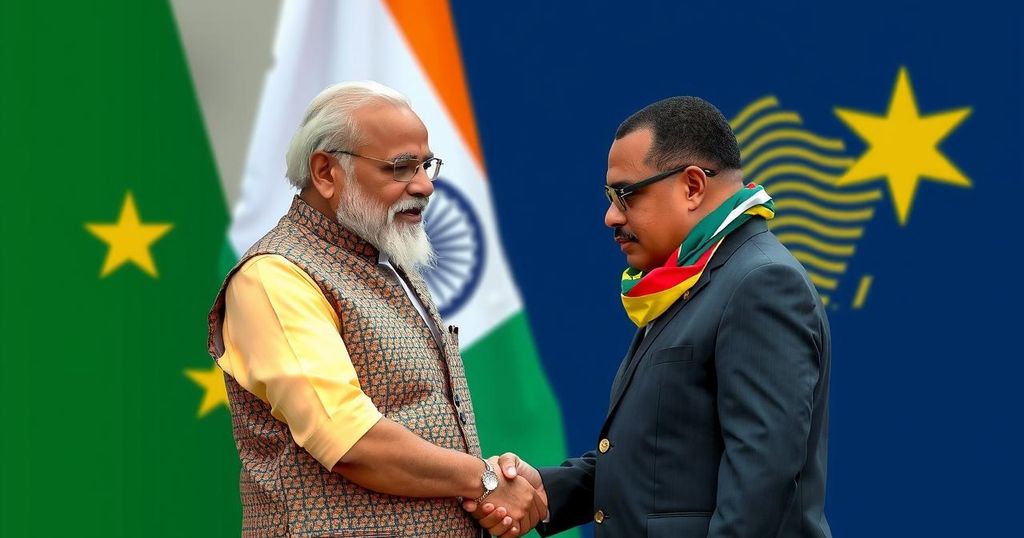First Indian Prime Minister’s Visit to Nigeria in 17 Years to Strengthen Ties
The Indian Prime Minister’s visit to Nigeria marks the first by an Indian leader in 17 years, aimed at enhancing investment and security ties. The established “Strategic Partnership” holds a historic significance for both nations, with India heavily investing in Nigeria’s development and education sectors while fostering long-term relationships through various initiatives.
The recent visit of the Indian Prime Minister to West Africa marks the first by an Indian leader in 17 years, with a focus on fortifying security and enhancing investment ties with Nigeria. The last visit by an Indian Prime Minister occurred in October 2007 when Manmohan Singh established a “Strategic Partnership” between the two nations. India and Nigeria, characterized by their large democratic populations and diverse societal structures, have sought to cultivate a collaborative relationship as natural partners. India’s diplomatic engagement with Nigeria began as early as 1958 when it opened its Diplomatic House in Lagos, two years pre-independence. This longstanding political rapport has ensured continuous high-level contacts for over six decades. As both countries strive for economic progress, there is a substantial Indian presence in Nigeria, with approximately 60,000 Indian expatriates contributing to the socio-economic landscape. Over 200 Indian companies have invested around $27 billion in Nigeria’s key manufacturing sectors, making India the second-largest employer in the country after the federal government. Furthermore, India supports Nigeria through developmental assistance, offering concessional loans and capacity-building training programs. The Indian Technical and Economic Cooperation (ITEC) initiative plays a pivotal role in this, providing training slots in civilian and defense sectors to Nigerian citizens, with approximately 27,500 beneficiaries since the 1970s. Moreover, India has established various scholarship programs for Nigerian students such as the ICCR scholarships and the e-Vidya Bharati initiative, underscoring its commitment to educational collaboration. The strength of the historical relationship between India and Nigeria reflects shared values and mutual aspirations as both nations aim for greater prosperity and stability.
The significance of the Indian Prime Minister’s visit to Nigeria lies in the context of enhancing bilateral relations that have been historically rich and mutually beneficial. The initiative not only seeks to boost security cooperation but also aims to strengthen economic ties through increased investments. Given the demographic realities and socio-historical connections between the two countries, this visit is strategically important for both parties. India has long been involved in capacity building and developmental aid in Nigeria, establishing strong educational and medical ties.
In conclusion, the Indian Prime Minister’s recent visit to Nigeria is a substantial step towards revitalizing and strengthening the long-standing relationship between the two nations. By focusing on boosting security measures and investment ties, this visit sets a framework for enhanced cooperation in various sectors. The collaborative efforts in education, defense, and economic development demonstrate India’s commitment to its role as a development partner within West Africa, particularly emphasizing its strategic relationship with Nigeria.
Original Source: m.economictimes.com




Post Comment